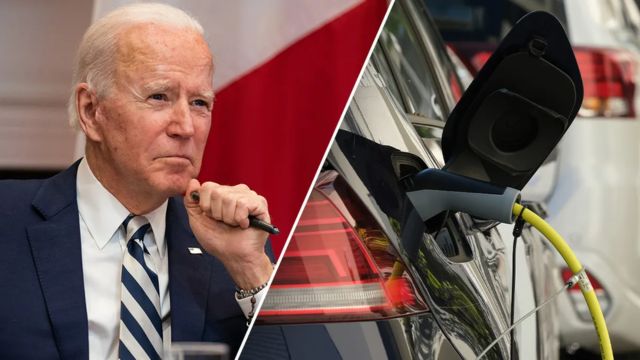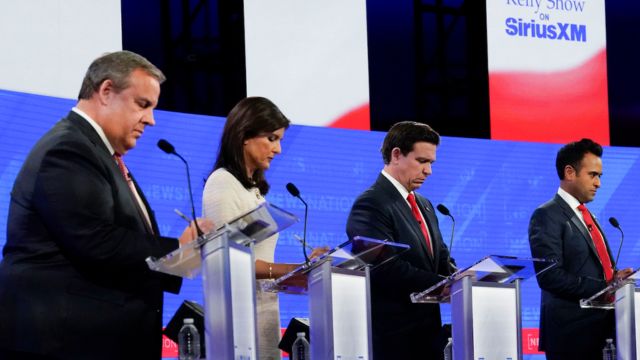
Some Democrats Join Republicans in Voting To Strike Down Biden’s EV Mandate
The House voted Wednesday night in favor of a bill that would get rid of government rules that target gas-powered cars. The White House says these rules are meant to “accelerate the transition to electric vehicles.”
The House passed the Choice in Automobile Retail Sales (CARS) Act by a vote of 221 to 197. There were 216 Republicans and 5 Democrats in favor—more than a dozen Republican lawmakers, led by Reps. Tim Walberg (R-Mich.) and Andrew Clyde (R-Ga.), presented the bill in July in response to the Biden administration’s rules on tailpipe emissions that came out a few months before.
Walberg told Fox News Digital, “The passing of the CARS Act is a huge win for all consumers and the whole American auto industry.” If you want to learn more about how central planning and Bidenomics don’t work, just look at Biden’s mission statement. Making people buy EVs has never been a smart or cost-effective idea.
“Americans should always have the option to buy whatever car suits them the best and the House has taken a massive step toward ensuring that opportunity still exists,” he said.
The CARS Act would specifically stop rules that the Environmental Protection Agency (EPA) suggested in April that would make it much harder for gas-powered cars to meet emissions standards at the tailpipe. The bill would also make it illegal for any rule to require the use of a certain technology or to limit the types of engines that can be used in new cars.
According to the White House, if the EPA rule is made official, up to 67% of new sedans, crossovers, SUVs, and light trucks could be electric by 2032. For buses and garbage trucks, that number could go up to 50%. The proposal isn’t really a law, but the Biden administration said it would be a big part of their plan to get more people to buy electric vehicles.
“Auto Innovators does not believe [the proposed standards] can be met without substantially increasing the cost of vehicles, reducing consumer choice, and disadvantaging major portions of the United States population,” John Bozzella, CEO of the large auto industry group Alliance for Automotive Innovation, which supports EVs, said after the EPA released its proposal in April.
“Taken together, the proposed GHG (greenhouse gas) and criteria pollutant standards are so stringent as to set a de facto BEV (battery electric vehicle) mandate,” he said.
People who are against the EPA’s actions, which are part of the Biden administration’s larger plan to get more people in the U.S. to own electric vehicles (EVs) and fight global warming by limiting carbon emissions from transportation, have said that the new standards will hurt consumers in the long run by making cars more expensive and forcing them to buy certain ones.
They’ve also said that a big push for electric vehicles will help Chinese businesses, which make most of the batteries used in EVs right now.
“Volunteers should not be biased when they vote for the CARS Act and speak out against the EPA’s de facto ban on most new gasoline, diesel, flex fuel, and hybrid vehicles,” Aaron Ringel, Vice President of Government Relations for the American Fuel & Petrochemical Manufacturers, told Fox News Digital before the vote Wednesday.
“Banning vehicle and fuel technologies based on just one category of emissions is unlawful, illogical, and bad for consumers, families, and our national security,” said Ringel. “It would trade our hard-earned energy security for dependence on China.”
He said that the CARS Act would keep the EPA’s power to set technology-neutral emission standards for vehicles, but those standards could not be changed to “force vehicle electrification.”
“Republicans are employing scare tactics to deliberately mislead the American people about EVs in order to prop up Big Oil corporations,” it said. “The reality is that EVs are already popular, cheaper to own, and ongoing technological advancements are translating to better options for consumers every year.”


